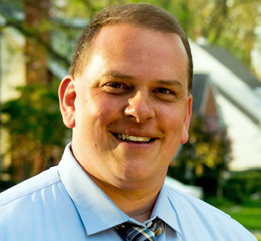
Sojourner’s Truth Staff
Toledo voters re-elected Mayor Wade Kapszukiewicz to a second term by an impressive margin over former Mayor Carty Finkbeiner, who was seeking a fourth term in office. By an almost 30-point margin, the incumbent, who campaigned on a theme of “let’s keep building,” convinced Toledo voters that he was the person to repair streets and bridges, bring jobs into the area and move Toledo into the future.
Finkbeiner, who last held the mayor’s office in 2009, campaigned on his plan to combat the recent surge in violence and his past successes of bringing businesses into the area. His theme of promoting his love for Toledo failed to make inroads among the electorate and his anti-violence campaign failed to have an impact.
Kapszukiewicz had a decided advantage during his campaign for re-election given the reversal in the city’s financial fortunes. He has had at his disposal $77 million in the “rainy day” fund and federal American Rescue Plan funds of $180 million. The mayor was able to make appearance after appearance to discuss his plans to spend those funds to benefit various neighborhoods and causes.
The almost final tally was 23,979 votes for Kapszukiewicz (68.9 percent) to 10,339 votes for Finkbeiner (29.7 percent). Only 22 percent of registered voters turned out for this off-year election which featured no state-wide or national races.
Four incumbents and a newcomer were elected to City Council but the most experienced candidate coming to the legislative body was a challenger.
Incumbents Katie Moline, Nick Komives, Cerssandra McPherson and Tiffany Preston Whitman finished in four of the top five spots among the field of 12 hopefuls. Moline captured 13.45 percent of the vote finishing in first place by a wide margin. She was appointed to her position in January 2020 to replace Sandy Spang, now a commissioner in the city Economic Development office, then won a special election later that year.
Komives will be starting his second term in office; McPherson and Preston Whitman were appointed to their positions in 2020 to replace suspended Councilmen Larry Sykes and Gary Johnson after the duo (among a total of four council members and one attorney) were charged by federal authorities with offense related to their official positions and financial actions.
McPherson and Whitman finished fourth and fifth respectively.
In third place was Michele Grim, making her first run for public office, and emphasizing her public policy credentials and crafted plans for approaching the decisions law makers must face.
The most experienced incoming council member is a former three-term member, George Sarantou, the longest-serving chairman of the finance committee during his 12-year time on council.
Among the half dozen finishing out of the money was Sykes who ended up in 12th place, reflecting both the voters’ bafflement about his suspended status and legal issues as well as a campaign that was conducted with virtually no funding.
Bob Vasquez, Christine Varwig and Polly Taylor-Gerken were re-elected to the Toledo Board of Education in a contest notable for a lack of suspense.
The Issues
Financing for public transportation in the Toledo area has now entered the 21st century. Lucas County voters approved a funding model switch from its long-term property tax levy to a sales tax and the metropolitan area will joined all other major Ohio cities who switched to such a sales tax long ago.
The change will provide the Toledo Area Regional Transit Authority with about $32 million a year compared to the $13 million annually provided by the levy. This will enable TARTA to open Sunday and holiday services again, to upgrade its aging fleet and to provide more job opportunities for the area’s economy.
TARTA had attempted on five previous occasions to include the proposal on the ballot only to be stymied by governing bodies of some of the member communities. Finally, voters got a chance to express their opinion and, by a 10 percent margin, approved the new .05 sales tax.
“It’s been a long time coming to finally have a local funding structure for TARTA that allows us to provide residents and businesses with the sustainable, efficient transit system they need and deserve,” said TARTA CEO Laura Koprowski. “These results demonstrate that our community understands how important a public transportation system is to their friends, neighbors and local businesses. In the coming months and years, those who depend on TARTA to reach jobs, doctors’ offices, churches and other destinations will notice improvements to our system made possible by voters. TARTA will strive to continue to be a good steward of public funds and an asset to the community.”
The Toledo Zoological Park Renewal and Decrease was approved by voters by more than 40 percentage points.
The voters rejected a request by Imagination Station for a replacement levy. The request, the smallest one on the ballot, asked for approval for a .1975 mil property tax levy to replace a .17 mil levy. The increase would have cost the owner of a house assessed at $100,000 $6.91 annually, an increase of less than a dollar per year.
